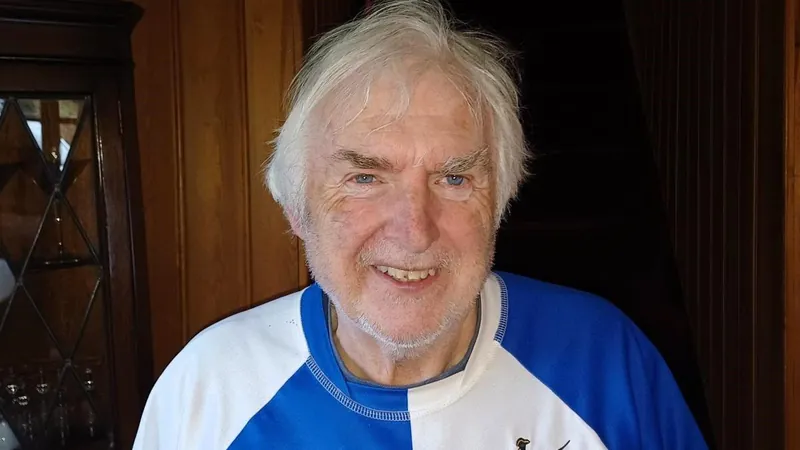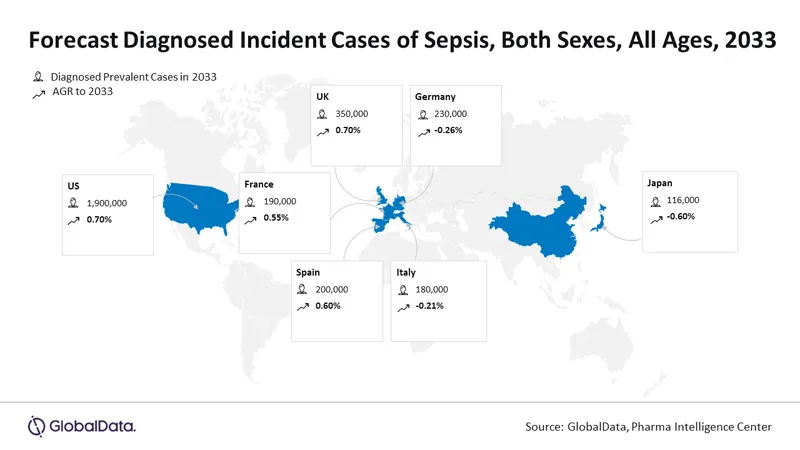
Groundbreaking £1.3 Million Study Aims to Revolutionize Stroke Rehabilitation
2024-11-27
Author: Mei
Groundbreaking £1.3 Million Study Aims to Revolutionize Stroke Rehabilitation
A pioneering initiative is set to transform the lives of stroke survivors, as the University of East Anglia (UEA) in Norwich embarks on the world’s largest clinical trial for a groundbreaking therapy targeting spatial inattention, a common yet often overlooked consequence of stroke. The therapy, aptly named Spatial Inattention Grasping Therapy (SIGHT), utilizes balancing rods to aid those who struggle with awareness on one side of their body.
Thanks to a generous funding boost of £1.26 million, this ambitious study aims to build upon previous promising trials and will kick off in January. The research will be conducted across eight major stroke centers in England, including reputable institutions like Cambridge University Hospitals and the Norfolk and Norwich University Hospital.
Dr. Stephanie Rossit, who leads the trial at UEA’s School of Psychology, revealed that approximately 390,000 of the 1.3 million stroke survivors in the UK experience spatial inattention, a condition for which effective treatment options are currently lacking. "This new trial is helping to fill the gap in the urgent search for successful treatments," she emphasized.
During earlier phases of the SIGHT trials, participants utilized their less affected hand to grasp and balance rods, leading to significant improvements in hand-eye coordination. One such participant, Jim Waters from Diss, Norfolk, shared a heartfelt testament about how the therapy allowed him to regain his independence after a stroke he suffered while driving in 2021. With renewed confidence, he was able to reacquire his driving license, stating, “It literally feels like getting your life back again.”
Strokes occur when a blood supply to part of the brain is axed, resulting in the death of brain cells. This large-scale SIGHT trial aims to involve 206 stroke survivors with spatial inattention, all of whom will undergo an MRI scan—though only a subset will receive the actual therapy. The trial is projected to run until February 2028.
This significant research effort is being funded by the Efficacy and Mechanism Evaluation Programme, a collaboration between the National Institute for Health and Care Research and the Medical Research Council. If successful, the results of the SIGHT trial could pave the way for effective therapies not just in the UK, but around the globe, potentially transforming the way stroke rehabilitation is approached in the years to come.
Stay tuned for updates on this monumental study, as it could influence treatment strategies for millions of stroke survivors worldwide!

 Brasil (PT)
Brasil (PT)
 Canada (EN)
Canada (EN)
 Chile (ES)
Chile (ES)
 España (ES)
España (ES)
 France (FR)
France (FR)
 Hong Kong (EN)
Hong Kong (EN)
 Italia (IT)
Italia (IT)
 日本 (JA)
日本 (JA)
 Magyarország (HU)
Magyarország (HU)
 Norge (NO)
Norge (NO)
 Polska (PL)
Polska (PL)
 Schweiz (DE)
Schweiz (DE)
 Singapore (EN)
Singapore (EN)
 Sverige (SV)
Sverige (SV)
 Suomi (FI)
Suomi (FI)
 Türkiye (TR)
Türkiye (TR)